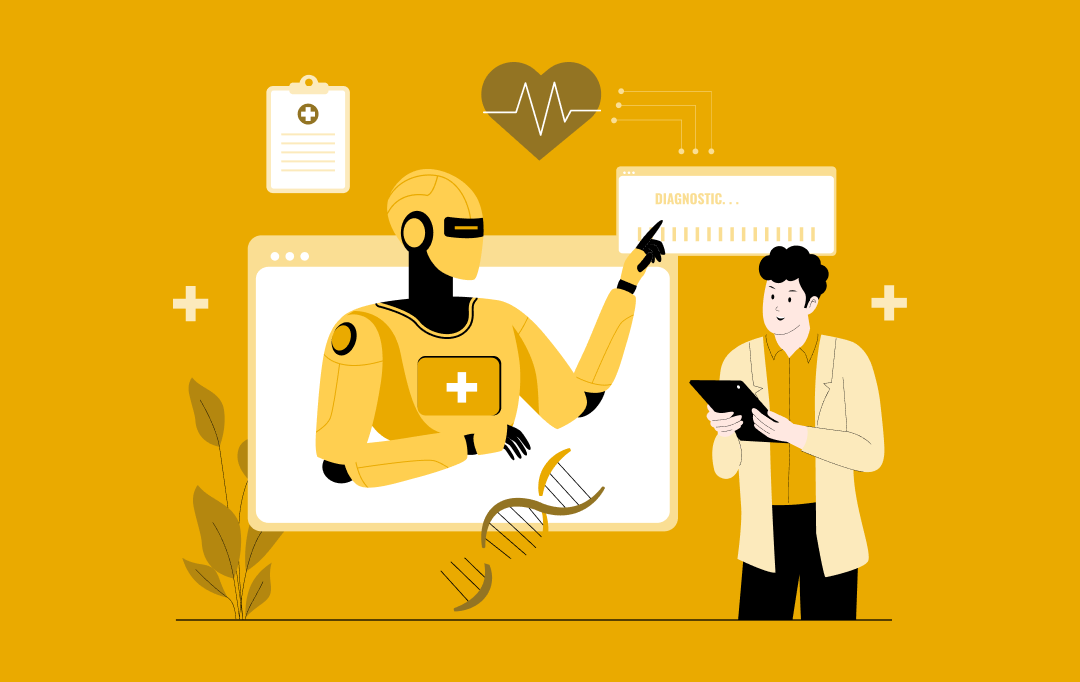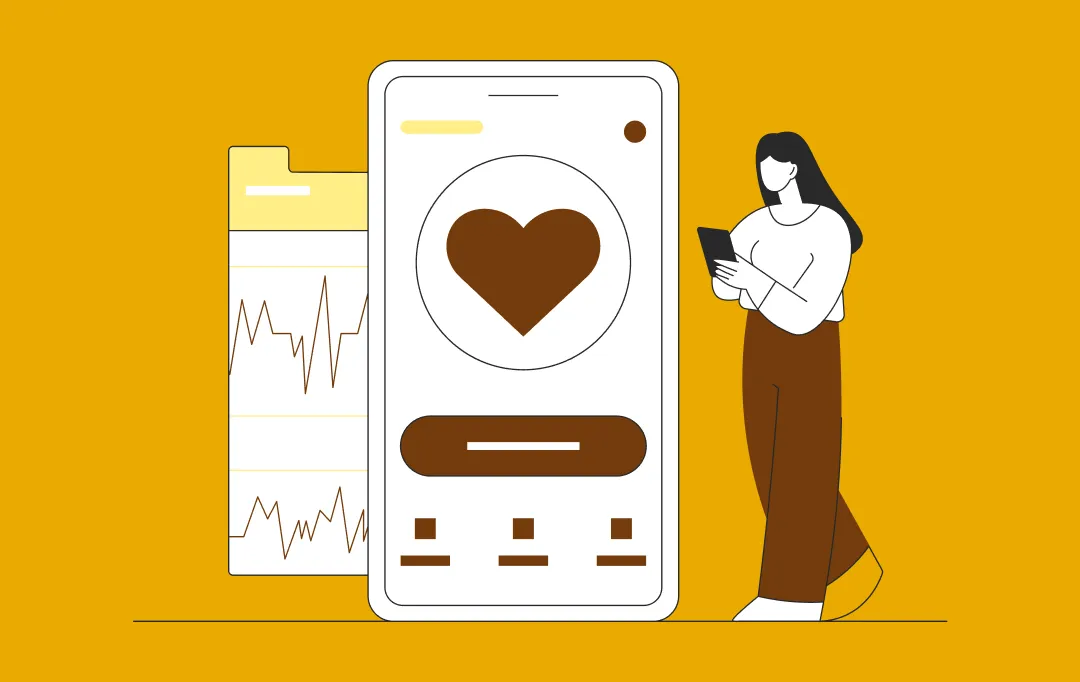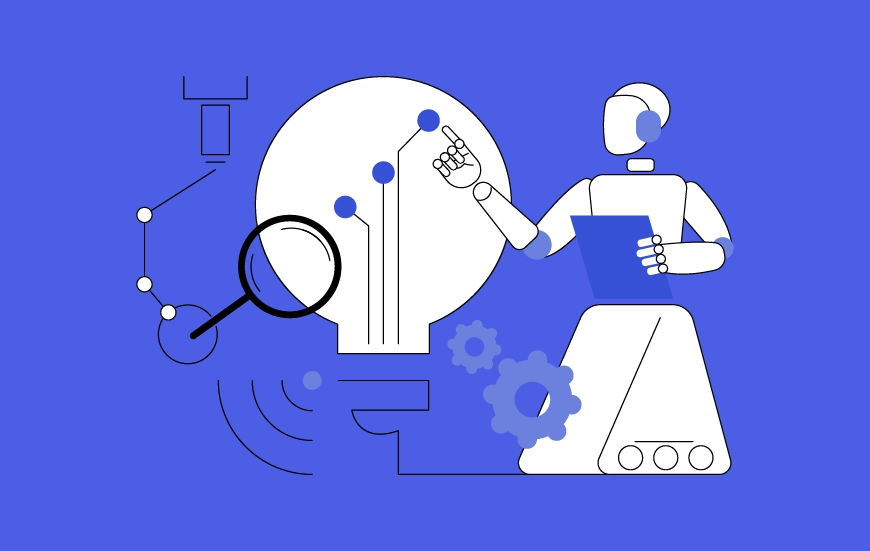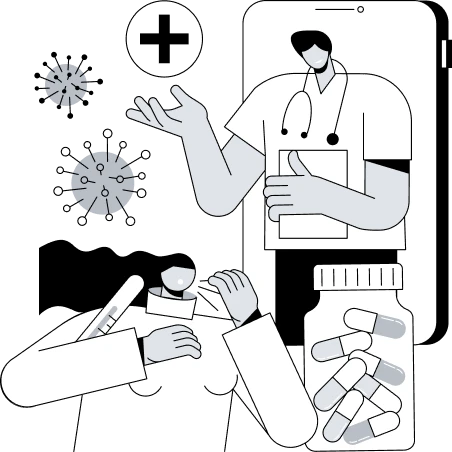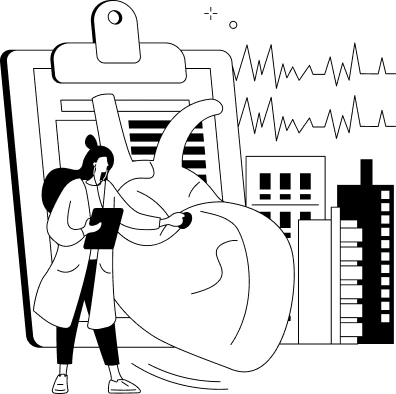- The Role of Software in Healthcare
- 18 Types of Healthcare Software that Businesses Can Leverage for Streamlining Operations
- EHR
- Telemedicine software
- Telehealth software
- Medical equipment management
- Apps for tracking your health
- Hospital management software (HMS)
- Medical diagnosis software
- Medical imaging software
- Healthcare billing software
- E-prescription software
- Medical research software
- Remote patient monitoring software
- Appointment booking software
- Patient feedback management software
- Pharmacy management software
- Medical database software
- Patient management software
- Healthcare RCM software
- Essential Features of a Healthcare Software for Businesses
- Geolocation
- Healthcare analytics
- Patient portals
- Voice Recognition
- Boost Your Medical Business with Appinventiv’s Healthcare Software Development Services
- FAQs
Digital transformation is now required in all industries, including healthcare. Doctors and patients no longer need to deal with time-consuming, arduous consultation processes and treatments daily. Digital transformation has paved the way for ample types of healthcare software that can help these healthcare businesses increase efficiency and healthcare delivery. The COVID-19 pandemic has also demonstrated the importance of new technological programs in combating health challenges.
The coronavirus pandemic hastened the adoption of digital health applications, particularly in telehealth, teleconsultation, and remote patient monitoring. According to Statista, the number of global online doctor consultation users has increased significantly, rising from 57+ million in 2019 to over 116 million in 2024. This digital health market is projected to cross 124 million users by 2028.
The adoption of digital solutions, along with custom healthcare management software, is also expected to increase over the coming years, indicating the importance of investments in innovative digital healthcare programs.
The IT services for healthcare industry, even before the pandemic, was forecasted to reach $326.1 billion in 2021 and is now predicted to reach $662 billion by 2026. We’re also seeing some of the barriers fall (digital skepticism), and healthcare stakeholders around the world have finally agreed that digital is the way to go. The global healthcare IT market size was estimated at $663.0 billion in 2023 and is expected to grow exponentially at a CAGR of 15.8% from 2024 to 2030.
This article will talk about what kinds of healthcare software systems are revolutionizing the industry and can help take your medical business to the next level. But before that, let’s understand a few benefits of healthcare software for the industry.
The Role of Software in Healthcare

From reshaping health management to massively reducing the errors and mishaps that affect healthcare practices and hospitals, medical practice management software development provides numerous advantages to users looking to advance their medical business ambitions.
Every year, hospitals grow larger, and their operations become more complex. To successfully maintain and operate the costly assets, hospitals and other healthcare providers are transitioning to specialized medical software, which is designed to manage operational costs, optimize inventory stocking, and ensure that critical equipment is well-maintained and cared for.
Moreover, to ensure patient satisfaction, functionalities such as instant accessibility to treatment histories and medical annals have become non-negotiable in healthcare management software. Tools such as automated scheduling and merged communication networks, as well as in-app reminders and messaging, enable a smooth and quick process – ideal ingredients for customer satisfaction.
Additionally, doctors nowadays can monitor their patients remotely using healthcare practice management system that enables them to consult, examine, and diagnose their patients without always leaving their practice.
18 Types of Healthcare Software that Businesses Can Leverage for Streamlining Operations
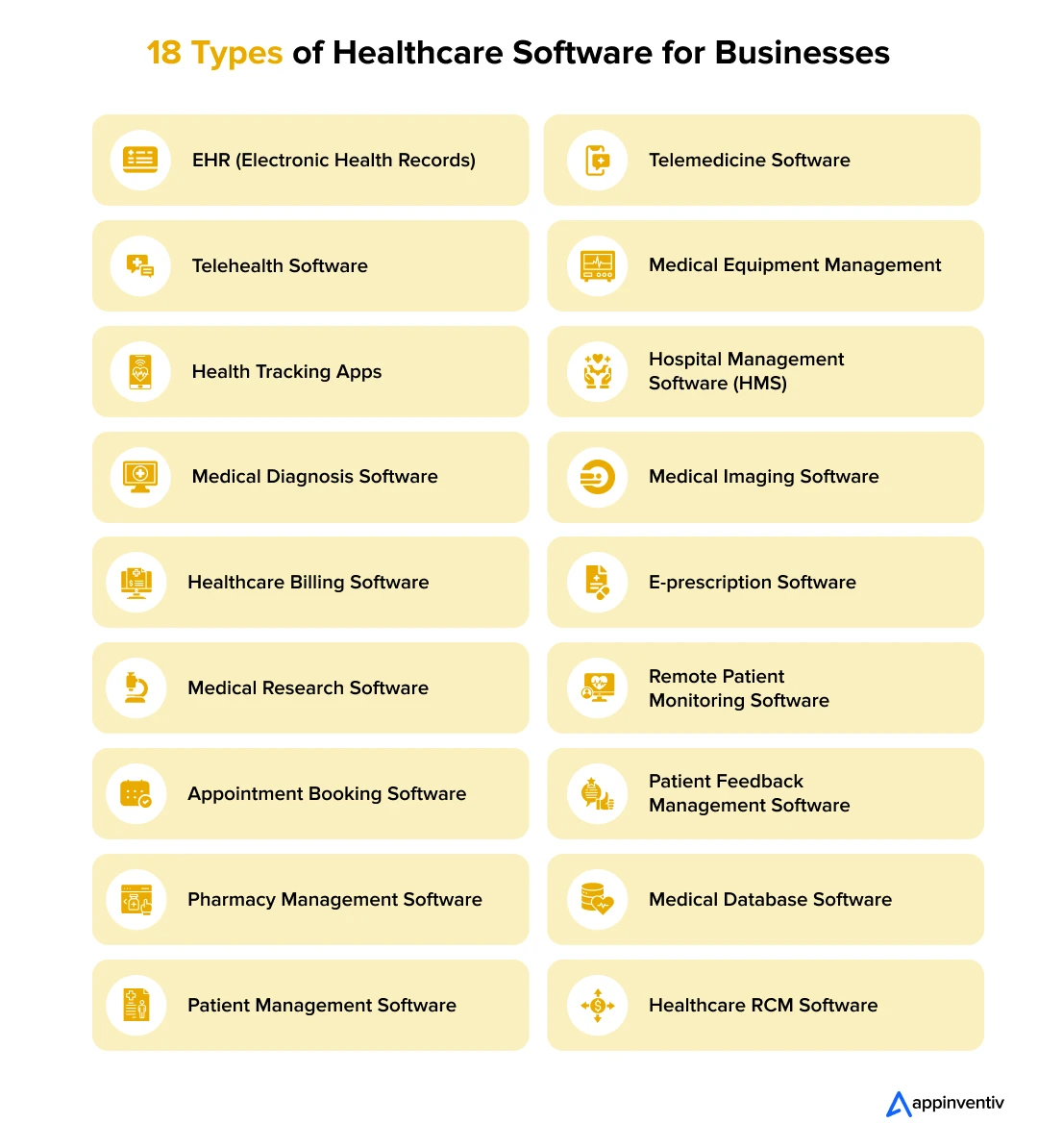
There are a variety of software programs, each of which is intended to improve specific processes. Some are intended for patients, while others are for clinical management, prognostics, and research purposes.
In this section, we will cover the 15 different types of software used in the healthcare industry and explore their possible benefits for the medical business.
EHR
EHRs, or electronic health records, are used to store patient information digitally. It is used by clinics and hospitals to store a patient’s comprehensive medical history. Many governments are moving forward with strategies to make EHRs mandatory.
When compared to paper records, these records offer a good, secure, and easily accessible method of storing medical records. Electronic records software is one of the leading types of healthcare software that don’t pose the risk of losing medical history. It also prevents duplicate medical records because there is only one file that is modified over time. However, EHR holds the potential to improve in the upcoming days, which would help streamline numerous healthcare operations.
Electronic health records or EHR software is utilized by clinics and hospitals alike and is typically merged with hospital management software.
[Also Read: How to build an EHR system? Features and cost breakdown]
Telemedicine software
Telemedicine is one of the best healthcare software that allows professional health practitioners to connect with patients remotely. This software is used to make it easier to provide medical services online. Because of the rapid advancement of technology, today’s telemedicine systems are essentially virtual clinics with the integration of multiple medical processes such as diagnostics, scheduling appointments, and others. Healthcare organizations implementing telemedicine software should prioritize telehealth EHR integration solutions to ensure seamless data flow between virtual consultations and patient records.
[Also Read: How Much Does Telemedicine App Development Cost?]
Telehealth software
Using telecommunications technology, telehealth software enables medical practitioners to remotely give healthcare services, instruction or mentoring, and health information. Contrary to telemedicine software, which concentrates mainly on clinical services, telehealth software covers a wider spectrum of medical services.
Medical personnel partner with a dedicated healthcare software solutions company to develop a telehealth software that can help them to remotely monitor a patient’s recovery after being released from the hospital, engage and counsel patients online about a preventive care topic, or train medical staff.
Medical equipment management
This type of software is intended to make medical equipment maintenance easier. The systems can free up hospital personnel from performing various manual tasks with medical equipment. Tracking inventory of dozens of expendable items, for instance, can be automated with correspondent alerts.
Furthermore, such types of healthcare software facilitates proper timetabling when hospital infrastructure requires routine maintenance. Medical equipment management software is typically included as part of larger hospital management software packages.
[Bonus Read: Building a custom LIMS software – Understanding the Why’s and How’s]
Apps for tracking your health
Although these applications are not directly related to “professional” medical software, they do act as an additional source of health-related data. The healthcare apps typically fall into one of three categories: fitness, diet, and wellbeing, or integrate functions from each.
They’re frequently accompanied by wearable technology that can collect more reliable health data like pulse rate and sleep quality or even act as thermometers and glucometers. If the apps were to be synchronized with actual health records at some point, they could subsidize them with more information.
As a leading healthcare software company, Appinventiv has successfully developed a platform that helps users to create comprehensive health records, find caregivers and connect with people in the healthcare community. The Health-e People application can fetch and present the data from 200+ devices and apps in one place while connecting unwell family members to medical caregivers.
The app was created with the intent to make the user interaction with the application a smooth process benefitting everyone – the users, caregivers, and researchers.
Hospital management software (HMS)
Hospital management software offers insights and management capabilities to multiple stakeholder groups in a hospital: administration, patients, and licensed healthcare professionals.
HMS frequently contains two different portals, one for management-oriented capabilities and another for patients. The management panel includes all management and health information required by the hospital, including medicine and food management, room booking and scheduling, doctor’s itineraries, and booked appointments. However, there are also entirely mundane elements such as utility expenditures, laundry management, power and water consumption, supply inventory, and so on.
Also Read: How Much Does It Cost to Build a Healthcare Appointment Scheduling App Like HotDoc?
The patient portal of these kinds of hospital administration software includes an electronic patient application form, all admittance details (often synced with Electronic Medical Records or EMR software), patient payment details, medical coverage, updates about admittance, medical procedures, hospital appointments, and all medication and prescription information.
Beyond electronic health records and telemedicine platforms, healthcare facilities increasingly require comprehensive systems for coordinating patient care, which is why building patient management software has become a strategic priority for modern medical practices seeking operational efficiency.
[Also Read: EMR Vs EHR Development – What Should you Choose for your Healthcare Business?]
Medical diagnosis software
The term “medical diagnosis software” refers to both patient-facing and physician-facing applications. Both have been extremely helpful throughout the pandemic.
Physician-facing medical diagnosis software enables doctors to collaborate on finding a diagnosis by sharing anonymized patient records. In certain cases, this is aided by the use of artificial intelligence to collect data and suggest potential diagnoses.
Patients can use medical diagnosis apps to file their symptoms and see if they ought to take any medical action, such as scheduling an appointment with a healthcare professional. This has reduced the workload of healthcare workers during the pandemic.
[Also Read: How to Build Software for Medical Devices? Process, Costs, Types, and More]
Medical imaging software
These types of medical processes CT, MRI, and PET scans and can also be employed to generate treatment-relevant 3D visualizations. Before performing procedures, surgeons, for instance, assess a 3D model of a particular patient on an MRI scan.
Medical imaging software is also used in the printing and designing of medical equipment such as implants and prosthetic limbs. As 3D printing becomes more widespread and complex, this will likely become an increasingly important application for medical imaging software.
Also Read: How Much Does It Cost to Build a DICOM Medical Imaging Software?
Healthcare billing software
This is also referred to as medical billing software. It is one of the types of healthcare software that automates the billing process in the healthcare sector.
In general, billing software for healthcare streamlines the billing process, including billing to the patient, the patient’s insurance provider, and other involved parties. Using billing software, all patients’ medical costs can be quickly accessed and sorted in an effective way. It also aids in improving the financial flows of the healthcare facility. Though they are now integrated into hospital and practice management systems, they are still eligible as stand-alone systems.
A healthcare billing software program’s critical components include:
- Increasing and facilitating reimbursement rates
- Maintaining the financial health of the healthcare organization
- Revenue optimization
- Tracking and automating financial flows
E-prescription software
Slowly but steadily, medical prescriptions are being converted to digital format. The main motivator of the rise of this kind of medical software for doctors is the convenience of changing or extending a prescription with a few clicks. E-prescriptions profit both patients and doctors because e-prescribing software greatly simplifies prescribing processes. With this kind of medical business software, it only takes a few minutes to grant, renew, or suspend a prescription. The day is not too far off when e-prescribing will become the standard throughout the global healthcare sector.
Medical research software
Every healthcare institution is constantly gaining unique healthcare experiences premised on unprecedented cases: every patient is unique, even if their symptoms appear to be similar. The goal of medical research software is to share such an experience. Healthcare, just like any other applied science, never stops conducting research to teach medical students and advance doctors’ qualifications.
Even though medical research software is among the most narrowly focused programming products in the digital world, its importance cannot be overstated: In plenty of cases, accurate diagnosis and, thus, appropriate treatment of patients are dependent on medical research software.
Remote patient monitoring software
IoT driven remote patient monitoring (RPM) software is one of the leading types of healthcare software that enables healthcare providers to monitor patients’ health data in real-time outside of conventional clinical settings. This is particularly useful for managing chronic diseases or following up post-surgery. RPM can alert medical staff about critical changes in a patient’s condition, facilitating timely interventions and reducing hospital readmissions.
Appointment booking software
Appointment booking software allows patients to schedule, reschedule, or cancel appointments online without the need to call the clinic. This software enhances the patient experience by providing flexibility and convenience while reducing the administrative burden on staff. It also helps in managing doctor schedules more efficiently, ensuring optimal resource utilization.
Patient feedback management software
Patient feedback management software helps healthcare facilities gather, analyze, and respond to patient feedback effectively. This type of software is crucial for improving service quality and patient satisfaction. By systematically collecting and analyzing feedback, healthcare providers can identify areas for improvement and implement changes to enhance the overall patient experience.
Our specialists are here to guide you with tailored software that optimize operations, enhance patient engagement, and support your business growth.
Pharmacy management software
Pharmacy management software offers insight into and optimizes drug inventory control, monitoring, and optimizing pharmaceutical product flow.
A thorough pharmacy management software solution also assists in pricing management, ensuring prescriptions are coordinated to the correct medication and doses, automating claims processing, and coordinating gains for a customer’s insurance.
A major benefit of pharmacy software that functions from an integrated platform is the capacity to route workflow tasks among multiple systems, like robotic prescription vending systems, as well as permit pharmacy employees access to prescription information throughout the pharmacy or around a health system’s channel.
Medical database software
This software, similar to any other kind of database, stores information about different medical issues. In direct contradiction to electronic health records, which primarily store patient data, medical database software records and stores a broader range of healthcare information. Medical databases, in addition to treatment plans and case reports, contain constantly updated information on diseases that can help doctors in their practice.
Patient management software
Patient manager software and clinic management software are the best healthcare software examples. These kinds of hospital software systems use a number of effective automated systems that keep track of patient data, diagnoses, interactions, prescriptions, and encounters in healthcare settings like hospitals or clinics.
Patient management software is essential for health care facilities to improve patient happiness and boost income. Cloud-based software for patient management streamlines procedures by fusing administrative systems with medical data. With patient management software, it is simple to do tasks like medical invoicing, inventory management, appointment scheduling, lab testing, and more.
Also Read: How Much Does it Cost to Build a Medical Scheduling Software
Healthcare RCM software
One of the major types of healthcare software that businesses can develop is Revenue Cycle Management (RCM) software. It is intended to assist healthcare providers in better managing their revenue cycle. This is accomplished by automating several tasks previously conducted by human staff, like billing and collections. This improves efficiency and speeds up the process of receiving payment for the services provided.
However, not every RCM software is developed equally, and the finest RCM software has a number of characteristics that set it apart from its direct competitors. Healthcare billing and collections professionals, like those in any other industry, understand what distinguishes good RCM software from bad. Apart from this, many devices are present that are used to indicate any body condition like measuring blood pressure level, monitoring heart rate and glucose level, amongst others. For instance, solutions for ERP in healthcare helps in managing patient information, scheduling, and billing more effectively.
[Also Read: The Ultimate Business Guide to Healthcare Application Development in 2025]
Essential Features of a Healthcare Software for Businesses
Time is of the essence, and no industry understands this more than the healthcare industry. Every day, doctors and healthcare professionals must deal with illnesses and emergency cases that must be handled as quickly as possible.
The features of healthcare management software listed below can help you save time by automating recurring or difficult tasks:
Geolocation
Current medical laws in the United States require a telemedicine platform to connect patients to doctors who practice in the same state. When a patient’s location is determined, the software can locate pharmacies nearby, give directions, and calculate the approximate time to get to the hospital in times of emergency. When hospital images and maps are available, it is easier for patients to find the appropriate department.
Healthcare analytics
When it pertains to healthcare analytics, information is clearly powerful. Healthcare analytics is a powerful healthcare management software feature that no modern hospital or practice should exist without.
Healthcare analytics uses big data and powerful computation to tabulate, correlate, and examine relevant data about your patients. The numbers are transformed into meaningful statistics that will assist your team in coordinating your organization’s financial and business aspects.
Patient portals
Medical organizations must recognize the value of a portal that provides patients with information transparency. Having such a healthcare management software with dedicated patient portals in place can lead to higher levels of satisfaction with their overall services.
Voice Recognition
When compared to the way we used to draw up notes and then let an assistant type them into the patient’s medical record or have the doctor recite notes to be documented by a third-party transcription team, voice recognition is a far more convenient method of data input.
With voice recognition, the practitioner can enter data using a variety of voice commands. Voice recognition improves the efficiency of your practice by reducing errors caused by poor handwriting. It also saves you valuable time because you don’t have to stand by for the medical transcription service to send back your work.
For instance, we helped Soniphi bring bio-acoustics science to an easy-to-use mobile app that assesses your vocal information to deliver a comprehensive well-being analysis report.
Boost Your Medical Business with Appinventiv’s Healthcare Software Development Services
We hope our blog on the multiple types of healthcare software has made you understand how dedicated software can pave the way for streamlined operations. With custom-designed software, the healthcare sector is fully incorporating digital transformation into healthcare operations and processes. Witness the healthcare industry’s future with competitive healthcare software development services from Appinventiv, a custom healthcare software solutions company.
We are a medical software development outsourcing company ready to develop medical software of any complexity or advance existing healthcare applications. Our skilled team delivers the best healthcare management software that enables our customers to win the market, enhance healthcare quality, boost patient satisfaction, and optimize internal workflows.
One of our success stories that we are proud to share is that we helped YouCOMM in developing a game-changing solution to the ever-present problem of patient-caregiver communication efficiency. The product has been receiving a lot of positive media recognition and has won the Entrepreneur Innovation Award.
Some of the major types of healthcare software we develop include remote patient monitoring, billing, practice management, wearable tech, and many more!
By joining forces with us, you can be confident that we will devote our full attention to your medical system software and enhance its utility with a wide range of high-performance tools and components.
FAQs
Q. Which software programs could healthcare providers use to support their work?
A. Healthcare software covers a wide range of applications, from health management software to software for creating 3D medical images (DICOM). The following is a list of some of the popular medical software businesses can leverage:
- Telemedicine Software
- Electronic Health Records (EHR)
- Hospital Management Software
- Medical Imaging Software
Q. How can I grow my healthcare business?
A. The healthcare industry is extremely competitive. All healthcare businesses must maintain a steady flow of patients. However, running and managing a healthcare facility or practice is a lot of work. Here are six simple ways to grow your healthcare business:
- Understand your targeted patients
- Pay attention to branding
- Concentrate on fundraising
- Increase your sales through referrals
- Participate in social media
- Encourage online feedback and reviews
Q. Why is software important for healthcare?
A. Healthcare management software plays a crucial role in the industry by providing the necessary tools to streamline complex processes, ensure accurate record-keeping, and enhance patient care through improved diagnostics and treatment plans. The various types of healthcare software, such as electronic health records (EHRs), patient management systems, and diagnostic tools, allow healthcare professionals to access and analyze critical patient data efficiently. This integration of technology empowered by healthcare software solutions improves the quality of care, optimizes workflow, and supports healthcare facilities in meeting regulatory compliance requirements effectively.


- In just 2 mins you will get a response
- Your idea is 100% protected by our Non Disclosure Agreement.
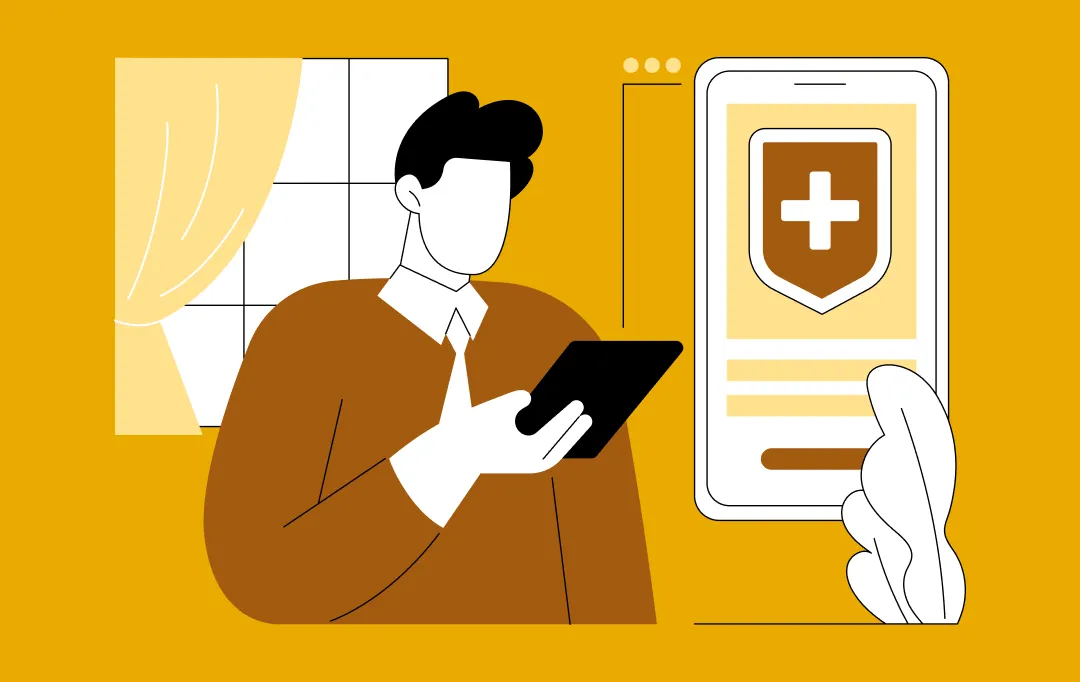
How To Build A Custom Behavioral Health Software? Costs, Features & Compliances
Key Takeaways Custom behavioral health software development supports the unique needs of therapy work that many general EHR tools do not cover well. Start with the foundational modules. Clinical notes, scheduling, billing, and security should be the first modules you build. Treatment plans and consent controls are important for safe and organized care, so they…
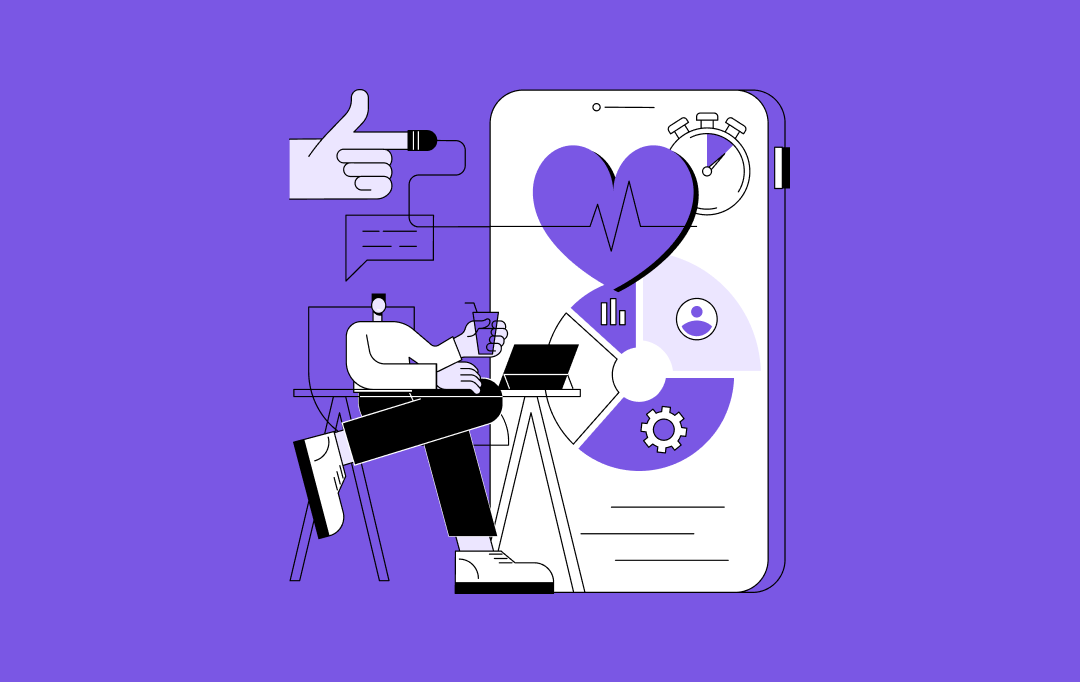
How Custom Healthcare App Development is Powering Digital-First NHS Care
Key Highlights: NHS teams are moving fast toward digital-first care, and custom apps are filling gaps that the standard NHS App cannot cover. Custom healthcare apps help reduce workload, cut waiting times, and improve how patients access care across Trusts and ICS regions. UK rules such as DTAC, NHS DSP Toolkit, NHS Login, and UK…

How to Implement Denial Management Automation in Healthcare
Key Takeaways Denial management works best when prevention is prioritized before recovery, starting at registration, eligibility, and authorization. Automation delivers the most value when introduced in phases, aligned with existing revenue cycle maturity. Clean data, clear ownership, and consistent denial categorization matter more than tools alone. Analytics and AI help teams focus on high-impact denials,…






















